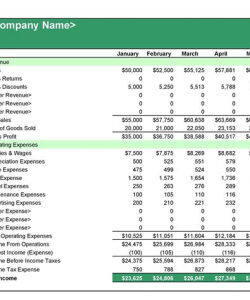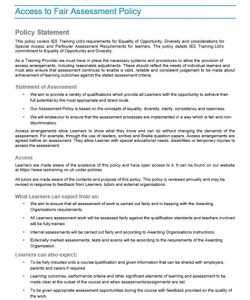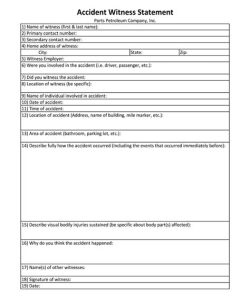When it comes to real estate transactions in New Jersey, accuracy and compliance are paramount. The ALTA HUD settlement statement template NJ is a critical document that ensures all parties are fully informed of the details of the transaction. This document, which stands for the American Land Title Association’s Housing and Urban Development settlement statement, is a standardized form used across the state to itemize all charges imposed upon a borrower and seller for a real estate transaction.
Understanding the components of the ALTA HUD settlement statement can be daunting, but it’s essential for a smooth and transparent property transfer. It lists out the financial aspects of the deal, including but not limited to the sales price, loan amounts, taxes, and other related fees. For those in New Jersey, familiarizing oneself with this document is not just beneficial; it’s a necessity for a legally sound transaction.
The importance of the ALTA HUD settlement statement in NJ cannot be overstated. It serves as a final check, ensuring that all the numbers add up and that the buyer and seller are on the same page. It’s a document that provides peace of mind, knowing that every charge has been accounted for and agreed upon by all involved parties.
Understanding the ALTA HUD Settlement Statement
The ALTA HUD settlement statement is a comprehensive document that outlines the terms and conditions of a real estate transaction. It includes detailed information about the purchase price, loan details, prorations, and adjustments between the buyer and seller. This document is designed to provide full disclosure to both parties, ensuring that there are no surprises at the closing table.
One of the key features of the ALTA HUD settlement statement is its ability to provide a clear breakdown of all costs associated with the transaction. This includes lender charges, title insurance fees, recording fees, and any other expenses that may apply. By having a detailed list, both parties can verify that the amounts charged are correct and justified.
In New Jersey, the ALTA HUD settlement statement is particularly important due to the state’s specific real estate laws and regulations. The document must be prepared in accordance with these rules to ensure that the transaction is legally binding and enforceable. It acts as a safeguard, protecting the interests of both the buyer and the seller by providing a legal framework for the transaction.
For real estate professionals in NJ, being well-versed in the ALTA HUD settlement statement is crucial. It’s a tool that facilitates transparency and trust, which are the foundations of any successful real estate deal. Professionals must ensure that the document is accurate and reflects the true nature of the transaction to maintain integrity and professionalism in the industry.
The Role of the ALTA HUD in Real Estate Transactions
The ALTA HUD settlement statement plays a pivotal role in real estate transactions in New Jersey. It’s not just a formality; it’s a vital component that carries legal weight. The document serves multiple purposes: it’s a receipt, a financial summary, and a legal record all in one. Its completion is a significant step towards finalizing the sale or purchase of a property.
For buyers, the ALTA HUD settlement statement provides a detailed account of what they are paying for. It breaks down their financial obligations, showing how their funds are being allocated. This level of detail is crucial for buyers to understand the full scope of their investment and to ensure that they are not being overcharged.
Sellers, on the other hand, benefit from the ALTA HUD settlement statement as it itemizes the proceeds they will receive from the transaction. It accounts for any outstanding mortgage balances, liens, or other encumbrances that need to be settled. This ensures that sellers are fully aware of the net amount they will walk away with post-closing.
The ALTA HUD settlement statement also serves as a record for tax purposes. Both buyers and sellers can use the document to report the financial details of the transaction to the IRS. This is particularly important in New Jersey, where real estate transactions can have significant tax implications.
Best Practices for Using the ALTA HUD Settlement Statement in NJ
Utilizing the ALTA HUD settlement statement correctly is essential for a successful real estate transaction in New Jersey. Best practices dictate that the document should be reviewed and understood by all parties involved. This means taking the time to go over each line item and ensuring that the information is accurate and complete.
Real estate agents and attorneys in NJ play a crucial role in this process. They are responsible for guiding their clients through the ALTA HUD settlement statement, explaining the various sections, and answering any questions that may arise. Their expertise is invaluable in ensuring that the document is filled out correctly and in compliance with state regulations.
Another best practice is to prepare the ALTA HUD settlement statement well in advance of the closing date. This allows ample time for review and corrections if necessary. It also provides an opportunity for buyers and sellers to raise any concerns or discrepancies they may find.
Finally, it’s important to keep a signed copy of the ALTA HUD settlement statement for personal records. This document serves as proof of the terms agreed upon and can be referenced in the future if any disputes or questions arise regarding the transaction.
In conclusion, the ALTA HUD settlement statement template NJ is a fundamental tool in real estate transactions. It ensures clarity, compliance, and confidence for all parties involved. By adhering to the guidelines and best practices outlined above, one can navigate the complexities of real estate deals in New Jersey with ease and professionalism.
The ALTA HUD settlement statement template NJ is more than just a form; it’s a testament to the meticulous nature of real estate transactions. Its role in ensuring a fair and transparent deal cannot be understated. As the real estate market in New Jersey continues to evolve, the ALTA HUD settlement statement remains a constant, providing a reliable framework for all involved.



